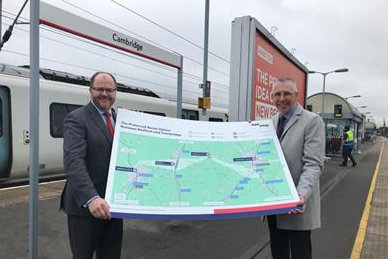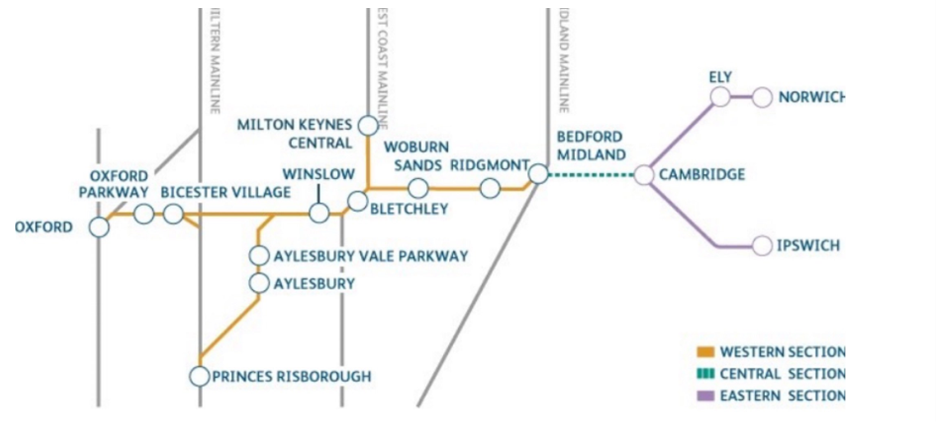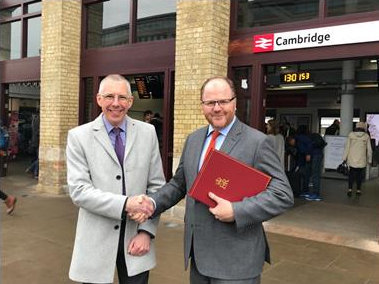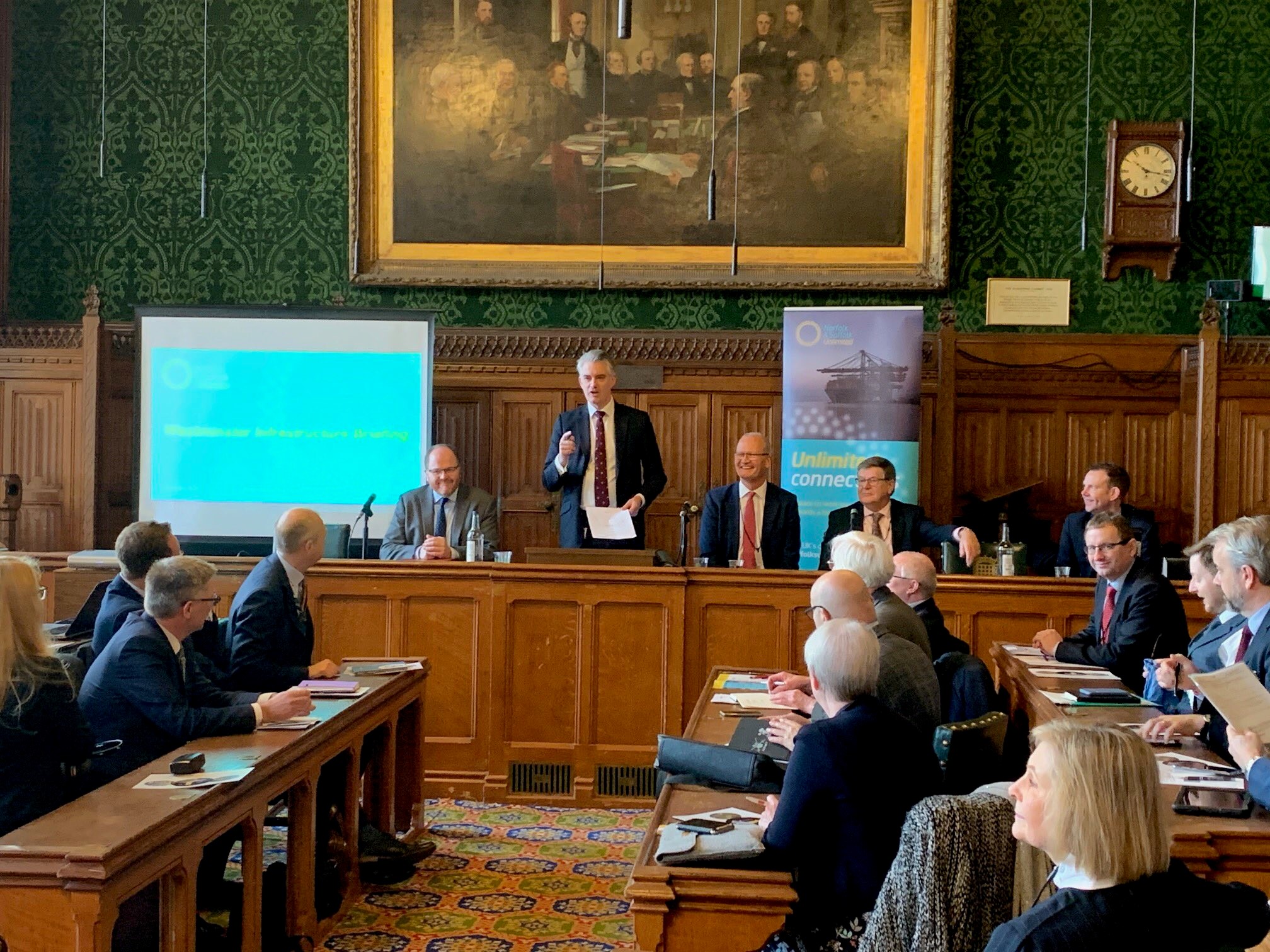
It isn’t just the North that needs levelling-up. Marginalised areas of rural and coastal poverty in the East need investment too. To achieve this, the East will need to speak with one voice.
That’s why I was delighted to join the East Anglian Infrastructure Summit in Westminster yesterday – with a number of my parliamentary colleagues, council leaders and local business leaders there also.
To learn more, please follow this link to the excellent EDP coverage of the event.
George Freeman highlights the Government’s commitment to dramatically accelerate the pace of progress on decarbonisation of transport, tackling disconnection of people and places left behind and the digitalisation of transport networks. He also outlines the significant investment in research and development, particularly in relation to hydrogen, biofuels and electric planes.
The Minister of State, Department for Transport (George Freeman)
It is a great pleasure to close this debate on transport emissions and decarbonisation as the Government’s first ever Minister for the decarbonisation of transport. I want to begin, however, by saying that while we have been in this debate there has been an accident in Turkey. A passenger plane has skidded off a runway and there are reports of injuries. I know the whole House’s thoughts will be with those affected.
There have been many valuable contributions this afternoon. I cannot go through them all in the limited time available, but I want to congratulate the hon. Member for Birmingham, Hall Green (Tahir Ali) on his maiden speech. He talked powerfully about Kashmir and apprenticeships. I know more about one than the other, although I hitch- hiked through Kashmir 30 years ago and I recognise the beauty of the place he described. I also want to highlight the speech by my hon. Friend the Member for Bexhill and Battle (Huw Merriman), and to congratulate him on becoming Chair of the Transport Committee, and the speech by the hon. Member for Rotherham (Sarah Champion), who has been running a powerful campaign on all-lane running on the M1, on which one of her constituents was killed. I thank her for the comments she made the other day in the Westminster Hall debate, which the Secretary State and I are taking very seriously.
My right hon. Friend the Member for East Hampshire (Damian Hinds), the former Secretary of State for Education, spoke powerfully about the importance of pursuing the electrification and decarbonisation agenda in a way that goes with the grain of everyday travel to work, families and the realities of getting around our country, particularly in the last mile.
The hon. Member for Twickenham (Munira Wilson) raised the important issue of Heathrow. Whatever happens at Heathrow, we are committed to making sure that it does not damage our commitment to our climate change obligations. In response to the hon. Member for Paisley and Renfrewshire North (Gavin Newlands), the SNP spokesman, I should make it clear that the UK Government want to support Scotland in its decarbonisation agenda. That is one reason why I am looking at hydrogen, which is a particular strength in the Scottish economy.
As Minister for the decarbonisation of transport, my brief, which has been worked through with the Prime Minister and the Secretary of State, is to dramatically accelerate the pace of progress on decarbonisation in transport, but I also look after disconnection and digitalisation. The two are connected. We must do more to tackle the disconnection of people and places left behind, the clusters held back, and the disconnection between agencies, not least those with responsibility for decarbonisation. The digitalisation of our transport networks—particularly the railways, but also the buses—can play a huge part in decarbonising our transport system and making it easier for passengers to make that modal shift.
The Prime Minister yesterday set out our groundbreaking commitment to be the first nation to ban diesel and hybrid cars after 2035, as recommended by the Committee on Climate Change. I am surprised we have not had more of a response and welcome for that from Opposition Members. They asked us to do it, and we have done it. It is a key step in tackling transport emissions and builds on our £1.5 billion investment in ultra low emission vehicles and our £400 million investment in charging infrastructure announced since the new Prime Minister and the Government took office.
We are looking across all modes of transport. On aviation, we have already committed to producing an aviation strategy looking to 2050 and beyond. We have made it clear that Heathrow expansion must meet strict criteria on air quality and noise and will not be allowed to materially affect the Government’s ability to meet our climate change obligations. On shipping, I pay tribute to my hon. Friend the Maritime Minister for launching our first clean maritime plan. The UK is one of the first countries to publish a domestic strategy to reduce shipping emissions—invisible to many but none the less hugely significant globally, particularly for this maritime nation. This followed the UK’s crucial role in the agreement of the International Maritime Organisation’s first strategy to reduce greenhouse gas emissions from ships. On rail, we have committed to getting rid of all diesel trains on the rail network by 2040, and we are looking at electrification and at hydrogen trains in the peripheral areas not likely to be electrified.
We will, however, go much further and faster than even this. I am clear that we want to make Brexit the moment when we step up to our global responsibilities to lead in the decarbonisation of transport and the growth of a green economy. That is why I am working with the Secretary of State on our first ever comprehensive transport decarbonisation plan, which Opposition Members might be interested to hear about, and which we will publish shortly. It will set out a groundbreaking approach to all modes, explaining how road, rail, shipping and aviation can reach net zero.
We will take a place-based approach, looking at the dirtiest motorway junctions, railway stations, ports and airports, and ensuring that everyone has a target that can be met. We want to establish the first ever digital metric for emissions per passenger per kilometre, and, using that metric, to drive “red, amber, green” digital mapping of emissions around the country. We are significantly increasing our research and development science budget, particularly in relation to hydrogen, biofuels and electric planes, to ensure that we have the technology that will help us in carbon budgets 5 and 6.
I also want to highlight the power of data and digital, which has traditionally been overlooked in this sector, but which I believe has a powerful role to play in harnessing our digital economy to ensure that we map and measure properly and empower consumers, through their phones and their local communities, to make the choices that will contribute to the driving down of emissions. I ask Members to imagine their Citymapper as a green carbon route-mapper, giving them points and allowing them to make informed choices about routes and how they can reduce carbon emissions. We can lead the digitalisation, as well as the place-based choices, that will drive modal shift.
I understand that behavioural change alone is not enough, which is why we are significantly increasing our R&D and technology spending. I am launching the first ever Department of Transport research strategy, and a list of priorities for the budget period is being prepared at this moment. We shall be considering hydrogen, biofuels and electric planes.
My aim in this decarb plan is to ensure that this country leads in both the policies and the science and technology to drive the decarbonisation of transport. Our new future transport strategy sets out a comprehensive plan to do two key things. The first is to make the UK a world leader in the testing, development and financing of innovation in transport, because it is an industrial strategy for global UK leadership. Secondly, it is a strategy for local, healthy, place-based neighbourhood choice to make it easier for households, families, communities and councils to drive the modal shift that we need. We believe that by doing both, we can get on track to hit carbon budgets 5 and 6.
I know that time is short: I have no more than 40 seconds left. Let me end by saying this. A number of colleagues have spoken about cycling, and we have committed £2.5 billion in this investment round and in this Parliament to double it. We have invested a further £200 million in buses, we have a £2 billion programme for decarbonisation, and there is £400 million for electric vehicle charging and another £400 million for hydrogen.
We are acting fast to repair decades of neglect. It is all very well for Opposition Members to laugh, but I do not remember their being able to set out such a record after 13 years in office. We have a grip on this issue. In view of the United Nations climate change conference in Glasgow later this year, COP26, let me make very clear that this Government get it. We are also absolutely committed to making clear at that conference that we will make Brexit the moment at which we inspire a new generation, lead globally, and do that most Conservative thing of all, which is to leave our environment in a better condition than the one in which we found it.
Our beautiful part of Norfolk has often seen many of its wonderful delights overlooked – simply because they are not known about by those living further afield!
That’s why I’m so supportive of the work of Visit Breckland – a non-profit organisation which is doing wonders to inform people of, and encourage people to visit, many of the great things that Breckland has to offer.
Breckland has a rich history, a wide variety of activities to enjoy and an abundance of places to explore – from toy stores to local distilleries, and from pubs and restaurants to historical sites!
To learn more, visit their website here.
(FOR BUSINESSES:
For many small and medium sized businesses, it can be hard to get their name out at a time when publicity is becoming increasingly vital in the digital-age. Visit Breckland, as it looks to grow the poll of information and services it offers, therefore provides a service to allow businesses to list themselves on their website.
If you would like to list your business on the Visit Breckland website, please do get in touch with Glyn via the contact details provided there)

George Freeman, the first Minister for Decarbonisation of Transport, responds to a debate on net zero targets and decarbonising transport outlining the Government’s Decarbonisation Strategy and commitment to the green economy and net zero.
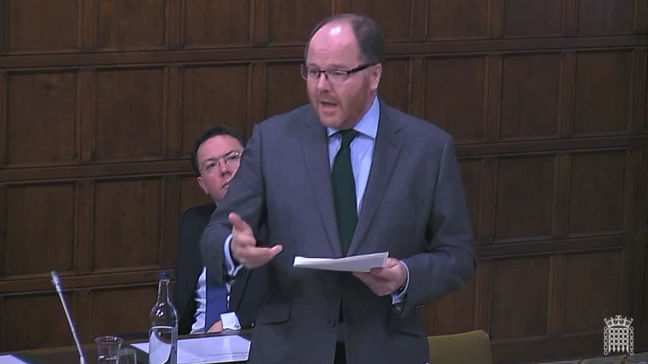
The Minister of State, Department for Transport (George Freeman)
May I say what a pleasure it is to serve under your chairmanship, Ms Nokes? In the time available, I shall do my best to set out the Government’s strategy and to deal with the many points that were raised.
First, I thank my right hon. Friend the Member for East Hampshire (Damian Hinds) for calling this debate on the importance of decarbonising the transport sector. As the first Minister for the decarbonisation of transport, I welcome this opportunity and the many contributions from Members from, I think, all parties in the House. We have seen quite a lot of expertise, including from the former Chair of the Transport Committee, the hon. Member for Nottingham South (Lilian Greenwood), and I have heard an awful lot with which we agree, including on the scale of the challenge of global climate change and the imperative of gripping transport decarbonisation now. There was an important point about avoiding climate anxiety while stressing the urgency of the situation. We do not want to depress people, particularly the young, by making out that this task is impossible.
We also heard about the real strides that we have made as a country and the need for the transport sector now to lean in and show the leadership that the energy sector has shown. I was particularly interested in the points that my right hon. Friend the Member for East Hampshire made about behavioural insights and understanding the real barriers to EV uptake and modal shift—indeed, we are putting a lot of emphasis on that in the strategy—and about the need for a smooth evolution of the support framework.
As the first Minister for the future of transport, focusing on decarbonisation, digitalisation and disconnection, I, with my right hon. Friend the Prime Minister, am absolutely determined that we will take an integrated approach. That means putting people and places—neighbourhoods—at the heart of the vision for transport, looking at what the transport sector needs to do to put people and places first and looking at our research and development programme across Government to ensure that we are backing the right innovations in technologies to support future green transport. To that end, we have established in the DFT a new directorate for the future of transport, which has seven workstreams and seven directors, dealing with R&D, finance, place, data, regulation, decarbonisation and the importance of behavioural insights as well of ensuring that we go with the grain of people’s aspirations for their families and their constituencies.
I do not want to take up too much time agreeing with everyone on the scale of the crisis. We have only to look to what has been happening in the past few months around the world—to Australia, to our own floods and to the rate of polar ice melt and the rising sea levels—to know that this is the defining global challenge of our generation. I can feel in this Chamber the appetite across the parties to show the electorate in this country, after the divisions of the past few years, that we are united in ensuring that we tackle it.
Let there be no doubt that this Government are 100% committed to leading—not just delivering but leading —and therefore we must accelerate our action to reduce greenhouse gas emissions to avoid longer-lasting consequences. That will mean reducing car dependency and building lower car dependency into the new houses that we are building, and that is why I was delighted last week to announce on the east-west arc, for example, that we are focusing on rail links to the new housing.
The decisions that we make will affect the future of the planet for generations to come. This is urgent. I am delighted that, as I am speaking, the Prime Minister is sitting down having just given his keynote speech defining how important this is for the Government. We will have to show new models of leadership globally, and that is why hosting COP this November is vital.
I will just take this opportunity to say that since Mrs Thatcher was, famously, the first western leader to warn of the pace of this back in the 1980s, we saw a few decades of quite slow progress until the last decade. I pay tribute to the right hon. Member for Doncaster North (Edward Miliband), David Cameron and Nick Clegg for putting together a consensus that we needed to act 10 years ago.
The Climate Change Act 2008 was the first of its kind in the world and made the UK the first country to have legally binding long-term emissions reduction targets, and we should be proud of that. Since 2000, we have decarbonised our economy faster than any other G20 country. Last year, with support from this House, we became the first major economy to set a legally binding target to achieve net zero emissions from across the UK economy by 2050. That will end our contribution to global climate change, but it does not mean the end of prosperity. I am equally proud that we have created more than 400,000 jobs in this sector. We need to be clear that green growth is more sustainable, resilient and globally exportable, and creates more opportunities for the next generation of people in this country.
Between 1990 and 2017, we reduced emissions by more than 40% while growing our economy by more than two thirds. Green growth works. However, we are not complacent—
Alan Brown
Will the Minister give way?
George Freeman
I will not, just because I am very short of time to respond to the debate.
Delivering net zero will require genuine transformation of our economy and society, including our homes, transport systems and businesses. Although challenging, it offers tremendous social and economic opportunity, but we will have to go further and faster to build on our track record, with transport front and centre.
I shall list briefly the things that we have done. This is a very significant demonstration of leadership. Our £1.5 billion ultra low emission vehicle programme is the envy of the world. We have just announced the £400 million charging infrastructure fund, which will see thousands more electric vehicle charge points installed across the UK, both superfast chargers at motorway service stations and domestic chargers. The first £70 million of that will create another 3,000 rapid charge points. With the private sector, we are on track to deliver £1 billion for charging infrastructure. I am genuinely delighted that the Prime Minister has this morning announced the Government’s intention to bring forward the ban on petrol, diesel and hybrid cars and vans to 2035, in line with the Committee on Climate Change’s advice.
On shipping, we have the clean maritime plan. On rail, we have set the ambition to remove all diesel-only trains from the network. On aviation, we have helped to lead the world in setting up that first and seminal international agreement for emissions reduction, and here in the UK we are investing £1.5 billion in future aviation technology. Yesterday, I visited the E-Fan X, a partnership between Rolls-Royce and Airbus at Cranfield pioneering the first electric plane.
We will have to invest in science and technology longer term, as well as modal shift for healthier and happier places short term, and to that end I will shortly be announcing with my right hon. Friend the Secretary of State our first ever transport decarbonisation plan. That will set out for the first time an approach for each mode—road, rail, shipping and aviation—and an approach by place. We want to look at the worst motorway junctions and railway stations, and we want to use digital tools to help to track standard emissions per passenger kilometre. And there will be a plan for science and R&D investment longer term, including for important technologies in areas such as hydrogen and carbon capture and storage—there is a whole range of technologies that can help us to drive both the modal shift and the emissions reduction.
This is about harnessing the power of our science and innovation and our digital economy to help lead the world in how to empower today’s travellers, passengers, drivers and households to make green choices. Imagine the power of a green Citymapper that will allow people to choose low-emission journeys and then reward them. That is very powerful and something that we need to look at.
Crucially, this will not all be done by top-down diktat from central Government; it will require—this is one reason why I welcome it—a bold new deal of devolution with towns and cities, and so I am in the process of working round all the Mayors of combined authorities.
We are short of time. Let me close by saying that if we are to achieve this objective, which we are determined to do, it will require not just science and not just devolution for modal shift; it will require, I suggest, a pan-Government approach on a par with that which we took in the build-up to the Olympics—a genuine decarbonisation olympiad, which will need to happen on a cross-party basis and inspire the next generation with the belief that we can do it.
Perhaps, with their permission, I can write to the hon. Members who raised specific questions with the detailed answers that I have written out but have no time to read out now.
At the heart of every great community is great community spirit!
That’s why I was delighted to officially open the Pickenham Hub in North Pickenham this past Saturday.
Back in December 2018, St Andrews C of E Primary Academy closed in the village due to falling student numbers. However, rather than allow this important community asset to be lost, the North Pickenham Community Project group sprung into action and worked tirelessly with local councillors, and myself, to secure the site for generations to come – as a hub where clubs and meetings can continue to take place for local communities in the area.
This is a real example of local residents doing things ‘the Norfolk Way’! Working together to ensure local community spirit isn’t lost because of such setbacks, but instead safeguarded through innovative means!
The Hub is outstanding and a real achievement for all those involved! The hard work has now been done to get it open. Now, it’s down to us as local residents to ‘use it, or lose it!’
To learn more, please visit the Pickenham Hub website here, or read more in the EDP’s recent article on the launch here.
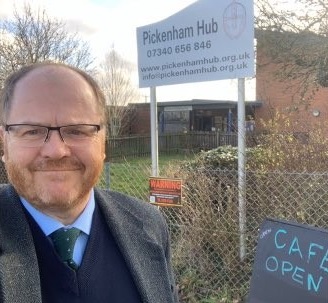
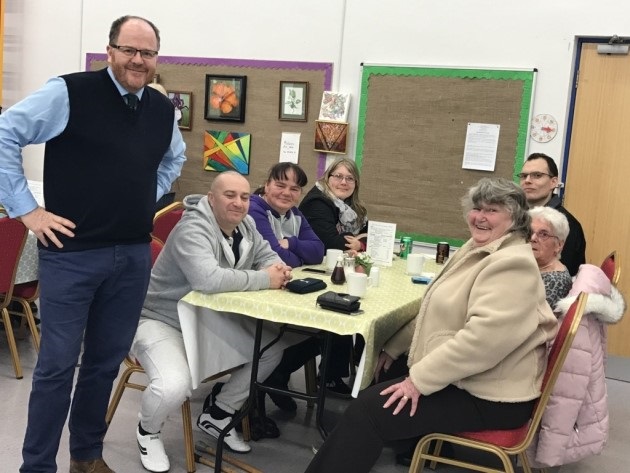
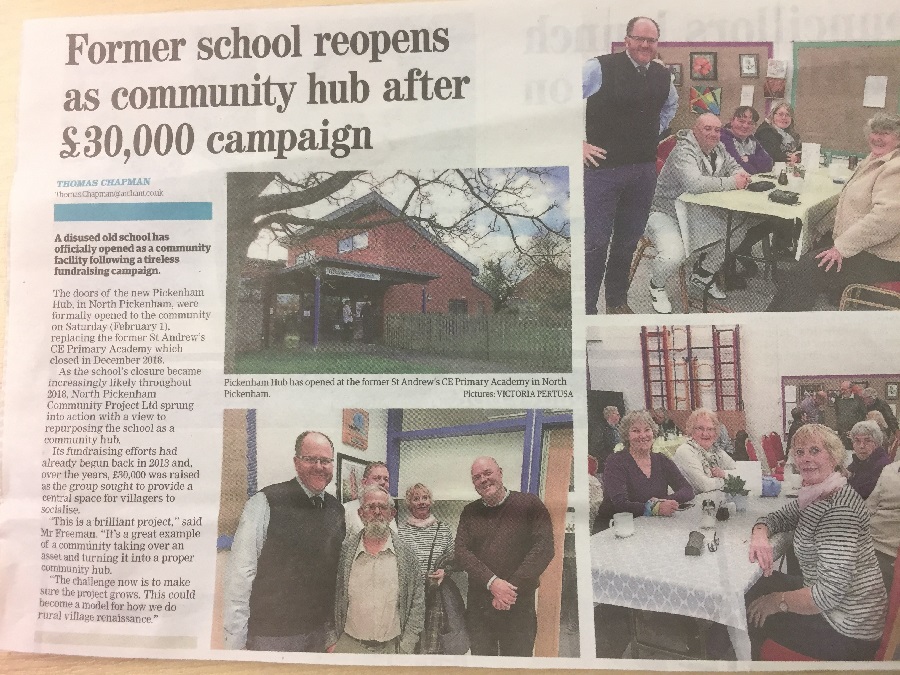
Pickenham Hub
Pickenham Hub
Improving connectivity in our part of the world was one of my first pledges when I began campaigning to be the MP for Mid Norfolk back in 2007.
We know only too well that there has been a historic lack of investment in Norfolk and the East and, while the dualling of the A11, increasing broadband speeds and the first round of committed works for A47 improvements have all been positive steps forward, there is clearly much more that still needs to be done.
That’s why I’m delighted to announce today that the Government is committing to the next stage of the East-West Rail project – by building a new line from Bedford to Cambridge to boost our East-West connectivity from Norwich-Cambridge-Oxford-Swindon (or what I call the “East-West Innovation Arc”!).
Delivered via an innovative new East-West Railway Company, this new line will significantly improve connectivity between two of our country’s fastest growing innovation hubs (Oxford and Cambridge), and many of the communities in between – better linking them to some of our nation’s most important commuter lines too. It will also raise funds through housing development and entrepreneurial growth – funds that will then be reinvested into train and track to improve services and reopen Beeching lines closed in the 1960s. This, in turn, will drive forward connectivity improvements for many more rural towns and villages – communities that so often feel they have been left behind.
By better connecting our part of the world to this “Innovation Arc”, we can fully unlock the potential of the NRP and Norfolk’s world leading Life Science and Agri-Tech businesses. We can also boost the prosperity of all those industries along the A11 Tech Corridor – bringing more jobs and investment to Norfolk!
Ultimately, I would like to reopen the Wymondham-Dereham line to commuter trains once again – hopefully extending even further to Fakenham, and beyond! I also want to regenerate both Wymondham and Attleborough Stations, along with the land around them, to turn them into accessible hubs with superfast 5G that businesses want to meet at, and where commuters feel they really are using a 21st century transport network. This model being pioneered by the East-West Rail project is the key to making those aims a reality!
It will also ensure that new development is properly planned in new towns and villages connected directly to the transport network – as I have long called for at Mildenhall. Gone will be the days of dumping housing estates on rural communities with little thought for those that will live in them or those that already live there!
These are hugely exciting times and, as a former Business Minister and someone deeply passionate about the East, I am determined to do all I can to ensure WE can share in this boost to prosperity.
To learn more, and to see my historic work in his area, please visit my website here and follow the links below:
East-West Rail Consortium website: here
- Article – ‘A landmark moment’: Consortium delight as ‘central section’ route is announced”: here
- BBC News coverage: here
- My call for a Regional Railway Company back in 2012: here
- Launch of East Anglian Rail Prospectus in 2012: here
- Web-story on my work to improve Wymondham Station: here
- My Cambridge-Norwich Tech Corridor video: here
